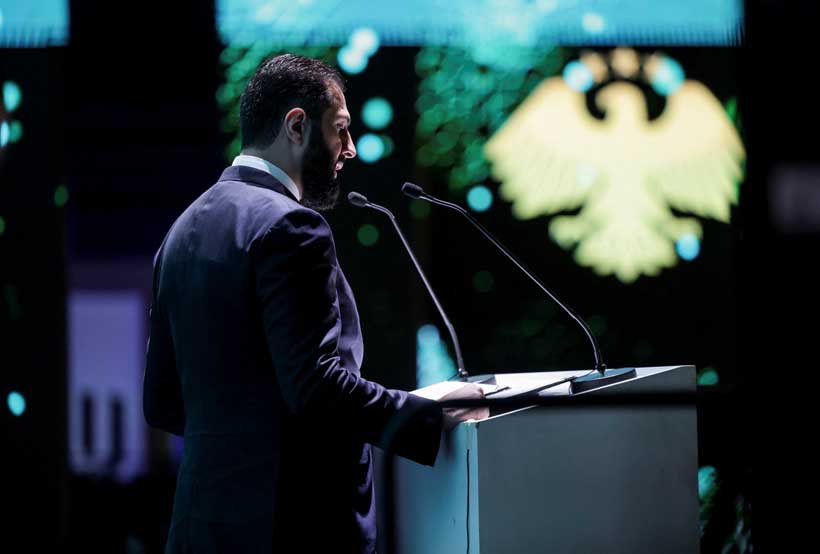Syrian President Ahmed al-Sharaa expressed surprise at the high government salaries during a meeting with over 100 loyalists at his former rebel base. He noted the luxury cars parked outside, questioning whether his officials had forgotten their revolutionary roots. The meeting came after Sharaa had toppled President Bashar al-Assad, leading to a tumultuous period marked by violence and forced evictions, resulting in over 2,000 deaths.
At the meeting, Sharaa ordered civil servants with luxury vehicles to surrender their keys or face investigation for corruption. Some keys were returned, highlighting challenges he faces as he transitions from rebellion to governance while avoiding corruption similar to Assad’s regime. Analysts noted that Sharaa lacks experience in official state governance, having come from a militia background where power relied on alliances, favor, and control.
Syria’s Ministry of Information described the meeting as informal, discussing political and security challenges and the need to change the investment culture of the previous regime. They claimed no keys were handed over. Sharaa’s administration includes family members in key roles, with his brothers overseeing business and investment sectors. However, this has raised concerns about mimicking the old regime’s nepotism.
One brother, Jamal, faced scrutiny and had his business activities curtailed after accusations of exploiting his family connections for personal gain. His office was closed due to alleged corruption and Sharaa directed government bodies not to engage with him. The Ministry confirmed Jamal’s office closure but did not specify any charges against him, stating he held no official position.
Sharaa’s anti-corruption message was reinforced after citizens complained about the ostentatious lifestyles of some former rebels now in government roles. In a subsequent public statement, he mandated officials to disclose their investments and warned against private business engagements. Despite these efforts, reports indicate that corruption persists in post-Assad Syria, with evidence of bribery to obtain the release of detained individuals or access seized property.
Interviews revealed that business leaders have repeatedly paid bribes to function in the new environment, with one industrialist reporting payments of large sums to secure employee releases. However, these claims could not be independently verified, pointing to ongoing issues with corruption even as Sharaa attempts to establish a new governance model in Syria.
The information ministry stated that bribery practices are not common, but some individuals suspected of accepting bribes for releasing detainees or conducting official business are under immediate investigation. A significant concern among Syria’s business community is the unclear process of settlement deals made by government officials with those linked to Assad.
These deals involve business owners giving up assets to return to work, starting after the fall of Damascus. Authorities want all settlements to go through a newly formed committee on illicit gains before transferring assets to a new sovereign wealth fund, which currently holds many properties tied to the Assad regime. However, the fund faces scrutiny, as two lawyers were arrested for alleged graft, and members of the illicit gains committee are also under investigation.
With information from Reuters


